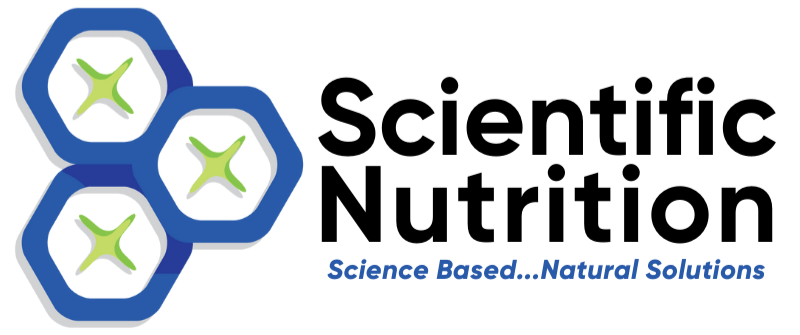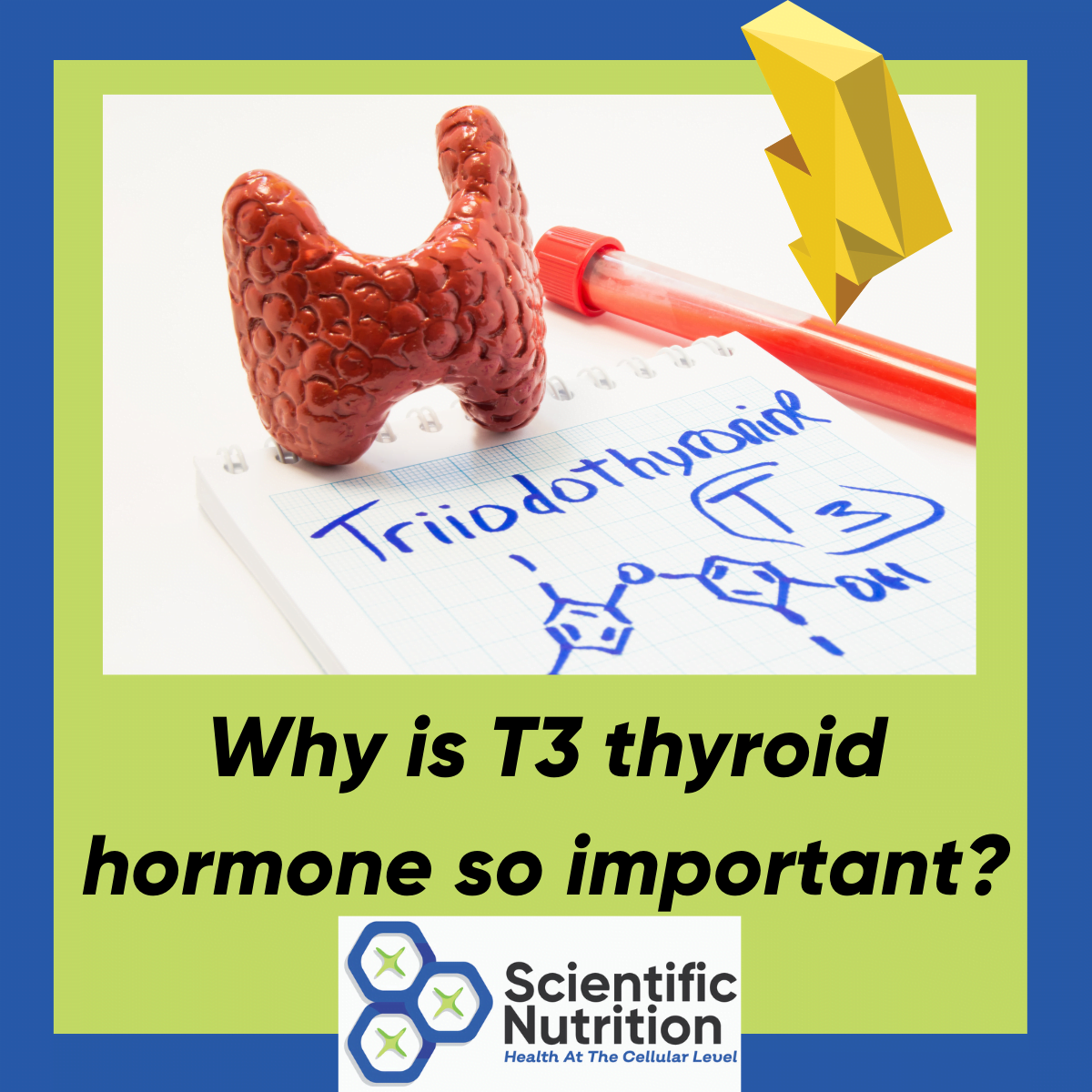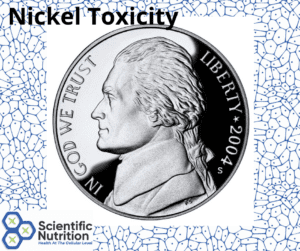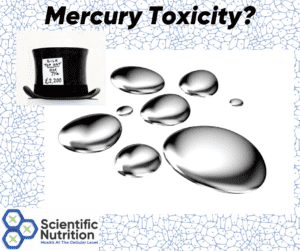Are you confused by all of the hormones and functions of your thyroid?
Why is thyroid hormone T3 so important?
Typically the doctor will test your TSH but there is much more you should test and understand. Looking deeper into your T4 and T3 levels can give you a better picture of where there may be an issue. Without TSH and T4, you won’t have the energy to function!
What does your thyroid hormone T3 and T4 do for you?
Let’s briefly review where your energy begins to understand why you may have symptoms. Your thyroid controls your metabolism by pulling iodine from your blood into the thyroid cells to create the hormone T4. Every cell in your body depends on the thyroid to the manage speed of metabolism of your body’s functions.
T3 is the active form of the thyroid hormone that is attached to a protein and delivers energy. It is responsible for your metabolic rate, brain development, and function as well as bone maintenance. T3 moves glucose from the blood into the muscles for energy. It is 5X more active biologically than T4.
How do TSH, T4, and thyroid hormone T3 work in my body?
There is a process to making your thyroid hormones work for you. It begins in the brain, signals the pituitary to create TSH, then the thyroid produces T4. Once your body has produced the T4 Thyroxine, it must convert in order to do anything for you as it is not active or usable energy. It needs to travel down to your liver to convert through a process of deiodination.
This process is the removal of iodine from a compound, such as a thyroid hormone, into your hormone Triiodothyronine or T3. This conversion happens in the cell membranes (which can be measured by hair analysis results) and within your liver.
Normally, about one-third of the T4 converts to T3 and about one-third converts to reverse T3 which I will cover in another article.
Causes for the disruption of the conversion from T4 to T3 include:
- A toxic amount of stored, hardened Calcium causes a shell-like formation around your cells.
. - Mineral deficiencies such as Selenium in the liver and the gut which is responsible for 5-10% of conversion. Selenium is also necessary to produce selenoproteins. This is a family of proteins linked to essential amino acids and enzymes that are needed to create thyroid hormones.
. - Being deficient in vitamins or a natural chemical element such as iodine is inhibiting enough T4 production.
. - Nutritional deficiencies caused by low stomach acids cause a leaky gut which allows an endotoxin of bacterial LPS (Lipopolysaccharides) into the bloodstream lowering T3.
. - Cytokines are secreted by certain cells of the immune system to regulate the defense against pathogens turning on the immune response. These damages the cell membrane resulting in impaired hormone receptors.
. - A sluggish liver is unable to convert.
. - Chronic candida/yeast infections produce acetaldehyde that can accumulate in tissues and prevent T3 from getting into the cells. Your bloodwork can have normal hormone levels but the T3 is locked out causing hypothyroidism symptoms.
. - Cellular inflammation can cause T4 medications to convert to Reverse T3 which is unusable.
. - Toxic exposure or accumulation of chlorine (tap water), fluoride (water, toothpaste, anti-depressant medications), and bromine (flour products, swimming pools, soda, and possibly your mattress or carpet materials).
. - Heavy metal toxicities such as Copper and Mercury can increase hormone production even when the hormones are not needed. Mercury can pull iodine away from usage in making T4.
. - Chronic fatigue or Crohn’s Disease is present. These are commonly associated to low T3 due to inflammation or high cortisol levels. Low T3 levels are the first clinical sign of kidney problems.
Why is your liver so important to your thyroid function?
The liver produces 3 transport proteins:
- Thyroid Binding Globulin (TBG) is a protein produced by your liver to carry thyroid hormones through your bloodstream. It regulates your metabolism and other functions.
. - Transthyretin is a transport protein in your blood and spinal fluid that carries the thyroxine (T4).
. - Albumin helps to keep fluid in your bloodstream so it doesn’t leak into other tissues while carrying enzymes, hormones, and vitamins.
These work together to carry T4 and T3 to tissues. Then they separate to become Free T4 and Free T3. They are not bound to proteins which would enable them to bind to the Thyroid Hormone Receptors (THRs). If your hormone receptors are full or you have poor cell permeability, neither hormone will be utilized. This is one more reason to look deeper into a possible dysfunction of the process.
How is thyroid hormone T3 used as energy?
The T3 is pulled into the mitochondria to make ATP (Adenosine triphosphate). This is the energy-carrying molecule found in the cells of all living things. To make ATP, you will need to have available B complex, Selenium, Iron, and Copper. After the ATP has been burned up, it becomes ADP (Adenosine diphosphate) to be recycled back into ATP again.
The kidney will then remove the T3 from cell nuclei and then out of the cell membrane. The process may be hampered by a Manganese deficiency, cell permeability issues, or fluoride toxicity. If you have heavy metal toxicity as seen on a hair analysis, it will block the T4/T3 conversion and create Reverse T3 which puts the emergency brake on the energy production.
Clearly, there are many factors to consider when looking deeper into your thyroid function.
If you have symptoms of hypothyroidism and have been told “your TSH is normal, have a nice day”, LET’S CHAT about your health goals!
Copyright Scientific Nutrition, LLC 2021




